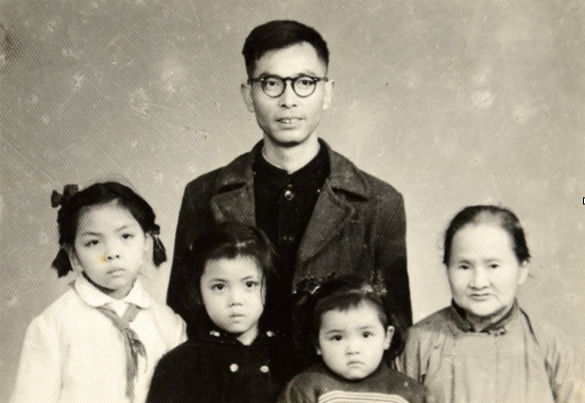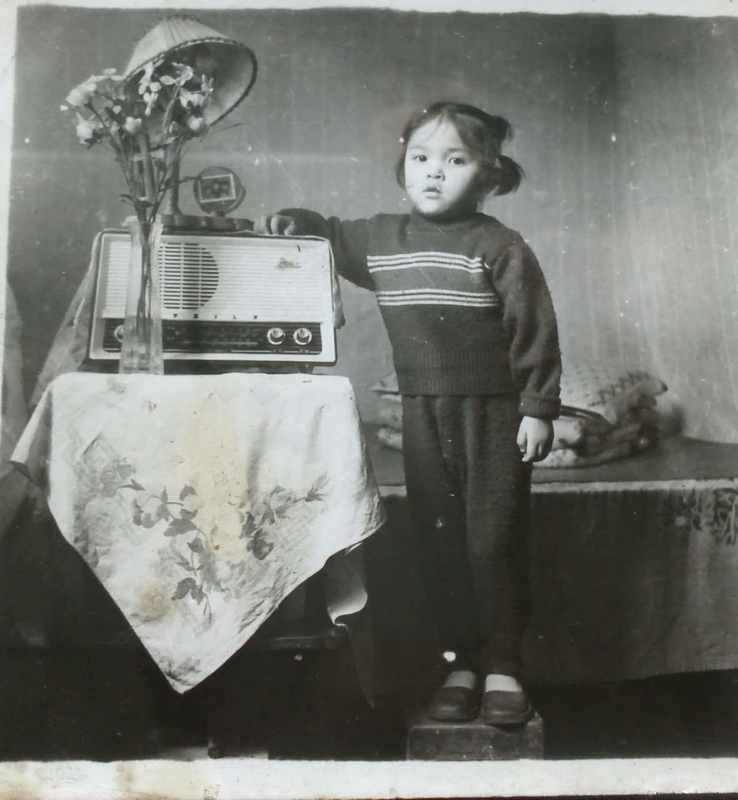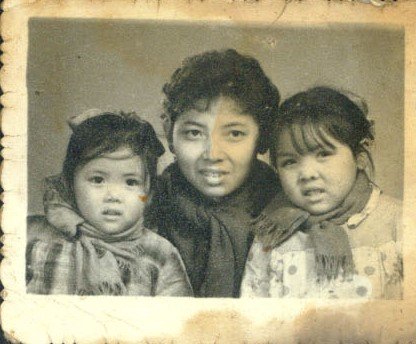Hi, Steemit friends: thank you for the warm welcome to this wonderful community. I would like to share my experience growing up in China, starting with a story about my birth. Through my personal story, I hope you can have a glimpse of how Chinese traditional culture of valuing boys over girls played such an important role in people’s lives. As a girl born and raised in China, I have always been very sensitive to gender inequality issues. Since I started working as a China adoption coordinator for an international adoption agency in 1995, I have been aware that within about twelve years, there were over tens of thousands of infant girls adopted by American families. Most of them were abandoned by their birth parents simply because they were born female. However, China is a changing country. I am happy to learn that in recent years, especially in big cities, girls are no longer discriminated against and they are equally valued by their parents as boys.
Steemit的朋友们,你们好!非常感谢从这个友好的群体中获得热情的欢迎和接纳。我希望在此与大家分享我在中国的成长经历,先从我出生时的故事开始。我希望通过自己亲生经历的故事, 让大家了解中国文化中重男轻女的传统在人们生活中扮演多么重要的角色。作为一个生长在中国的女孩子,我一直对男女性别不平等的现象感到非常敏感。我自从1995年开始在一个国际收养服务机构工作期间,作为中国收养项目协调人,我了解到在我从事收养工作的头十二年内,中国有成千上万的女孩子被美国家庭收养。她们当中绝大数仅仅是因为她们的性别而被她们的亲生父母遗弃。然而,中国在变化。让我感到非常欣慰的是在最近十年里,尤其是在中国的大城市里,女孩子们不再受歧视,她们可以从父母那里获得像男孩子们可以得到的同等的关爱。

This was my first photo taken when I was three years old with my father, two older sisters and our nannie. My mother was away working in a labor camp. Unlike my eldest sister who had many baby photos of herself, I did not have one single baby photo.
这是我三岁时和爸爸,两个姐姐及我们的保姆的合影。当时我妈妈在五七干校劳动。这也是我的第一张照片。我大姐有许多她婴儿时的留影,但我没有一张婴儿留影。
My parents spent the Chinese New Year in 1964 with great expectation and excitement. They were soon expecting the birth of their third child. One week after the Chinese New Year celebration, I was born. Unfortunately, my very birth was a big disappointment to my parents, especially to my father. After having two daughters already, my parents desperately wanted their third child to be a son. Although both my parents were college educated and both worked for the government agencies in China, they were influenced by the deeply rooted Chinese culture of valuing boys over girls. The world I was born into was cold and bitter, like the winter in Chengdu. My mother had to go through the labor and child birth without the comfort and support from my father or other family members because during that time in China husbands or relatives were not allowed in the birthing room. After she gave birth and returned to her ward, she was not received by a loving and supportive husband. What she saw in my father’s eyes was disappointment and displeasure. She held me tightly in her arms with sadness and a deep sense of shame. For in China at that time people believed that it was the woman’s fault and incompetence if she was not able to give birth to male off-springs.
我的父母怀着极大的期待和兴奋的心情度过了1964年的春节。他们马上将迎接他们的第三个孩子的降世。春节一周后,我诞生了。遗憾的是,我的出生给我父母带来的不是喜悦,而是极度的失望,尤其是对我的爸爸。我父母已经有两个女儿了,他们当时最强烈的愿望就是他们的第三个孩子是一个男孩子。虽然我父母两人都受过高等教育,两人都在中国政府机关上班,然而,他们的思想被中国文化中根深蒂固的重男轻女的传统所影响。迎接我的是一个冰冷和悲凉的世界,冷得就像成都的冬天。我妈妈在没有丈夫和其他亲人的陪伴下独自忍受产子的痛苦生下了我,因为当时的妇女在生产时丈夫和家人是不能在身边陪伴的。产后回到病房时她从自己丈夫那里没有得到任何的关爱和安抚,从他的眼里她看到的只是失望和不悦。我妈妈把我紧紧地抱在怀里,内心充满了悲哀和自责。因为在中国,人们认为不能生育男孩子是女人的错和无能。在生完孩子住院期间,

A photo of me taken at home in 1968 when I was four years old. I was standing on a small stool putting my hand on the most expensive possession of our family at that time -- a radio.
这是1968年我四岁时在家里的留影。我脚踩在一个小凳子上,小手搭在家里当时最贵的拥有物一台收音机上。
My mother reacted very defensively to whatever my father would say or do while she stayed at the hospital after my birth. One day, she accidentally spilled some water on the sleeve of her cotton coat, she asked my father to take the coat to the kitchen and dry the sleeve over the stove. She did not want to catch a cold wearing a cotton coat with a wet sleeve. My father told her that he had bought himself a movie ticket and was just getting ready to leave so she had to wait. My mothered was so shocked and enraged by my father’s insensitive and cold response that she threw her cotton coat right into his face in front of other three women who shared the same ward with her. My mother shared this story with me several times when I was older. Each time she repeated this story was when she and my father had a fight, which happened a lot during my childhood. My mother carried her resentment toward my father for many years to come. She could not forget about how she was treated by my father when she was at the weakest of her time after giving birth to me.
我妈妈对我爸爸的一言一行都非常敏感和防卫。一天,她不小心把水洒在了自己的棉袄袖子上,她叫我爸爸把棉袄拿到医院的厨房火炉上去烤一烤,她不想因为穿一件湿着袖子的棉袄而着凉。但我爸爸说他刚买了一张电影票,正准备出去看电影,让我妈妈等他回来后再烤她的棉衣。我妈妈对他如此不体贴的表现感到震惊和愤怒,她当着病房里另外三个产妇的面直接把棉袄摔到我爸爸的脸上。当我开始懂事后,我妈妈经常给我提起这段心酸的故事。每天提起这件事情都是在她和我爸爸吵架以后。在我的童年记忆里,他们俩经常吵架。我妈妈几十年里从来没有释怀在她生下我后身体最虚弱的时候我爸爸是如何对待她的。

A photo of my mother and two older sisters taken at a photo studio in Chengdu in 1962, two years before I was born. My mother had a perm and a scarf which matched the scarfs she put on both my sisters. My sisters also had decorative ribbons on their hair.
这是1962年我出生前两年我妈妈和两个姐姐在成都照相馆照的相片。照片上的妈妈烫了头,给两个女儿戴上了和她相配的围巾。我两个姐姐头上还系着彩带。
I have lived and worked in China and Hong Kong for 2 1/2 years now. The culture is definitely stronger in China but still prevalent in HK. I am very fascinated by Confucius thought and how it's impacted culture. As an over all influence do you like Confucius thought or do you agree more with more of the individual focus of the west?
The Confucius philosophy has the dominating influence to Chinese culture. I think Confucius thought has many positive influence on harmonious relationship within families and the society. Filial piety, for example is still highly emphasized in China. However, Confucius thought believes that men are superior to women (男尊女卑)which has been the philosophical source of women's lower status and repression in families and society as a whole. Since I was an English major as a young woman, I was more fascinated by the western philosophy of individualism. As someone who has lived in the States for 28 years, I see the strong point and weak point of both cultures. I am not in favor of rugged individualism nor social relations based on too much sacrifice of individuals.
Wow, what a story. Such oppressive sexist norms, men can be such idiots sometimes. Good thing you have such a fierce mother.
I'm curious to hear more about what it was like growing up as a woman in communist China, and to see your family's pictures. Thanks for sharing!
Thank you so much! I plan to write more post on my experience growing up in communist China.
Congratulations @xqcai!
Your post was mentioned in my hit parade in the following category:
Thank you so much @arcange!
可爱的帖子,这么有意义... Upvoted和跟随
关注@chuxlouis非常感谢
Kě'ài de tiězi, zhème yǒu yìyì... Upvoted hé gēnsuí
guānzhù@chuxlouis fēicháng gǎnxiè
我是从中国的农村长大的,在过去重男轻女的现象特别严重,而且还会有一些偏激的行为,如果谁家没有个男孩,这个家庭的地位在村里就会非常低下。有的家庭一连生了好几个女孩,还在继续生育,一直等到生出男孩,有的家庭为此背负了沉重的养育包袱,导致越来越穷,孩子也无法得到良好的教育。
谢谢你的分享和点评。现在在农村重男轻女的现象还很严重吗?
现在好很多了,现在农村很少有生一堆孩子的家庭了,但从根深蒂固的观念上还是重男轻女,认为女孩要嫁出去,是泼出去的水,有些家庭在教育上也会让男孩上更好的学校。
总体上还是不断进步的。
Isn't it interesting that no matter what culture we are talking about, the human condition is always the common thread - we are all flawed and struggle to make our way in the world.
It is so true. The human condition is the common thread connecting all cultures.
Yes,and because of that there is hope that perhaps one day we can ignore the differences on the outside and see the similarities on the inside.
Great post :)
Thank you!
Very good post! Although it is sad, it also is a detailed story and very well written. People can overcome hardships and rise above. @jbcoin
Thank you!
Thank you so much for sharing your story @xqcai!
Thank you!
非常不错,感谢你的分享!
非常感谢你的点赞!很高兴在此认识你!
Great family
感谢您
喜欢您的帖子
很高兴您喜欢这个帖子。希望今后能够经常互动。谢谢您!
Hahaha very good post Chinese culture in general is quite fascinating!